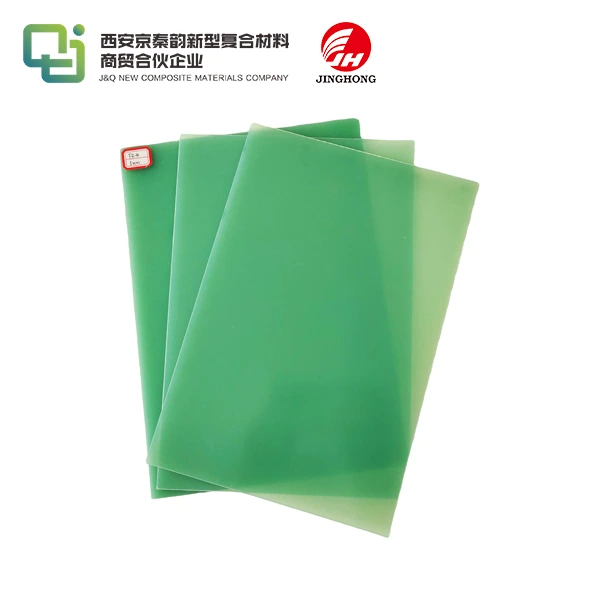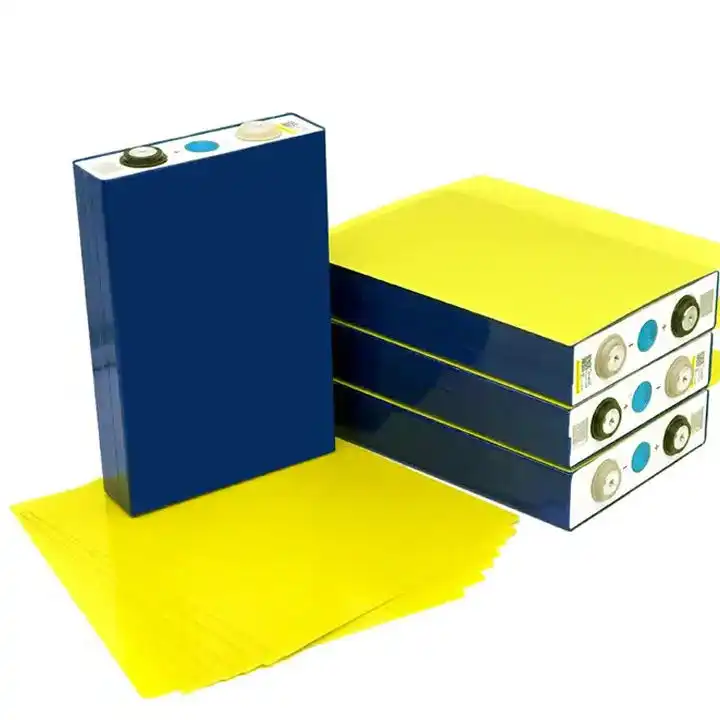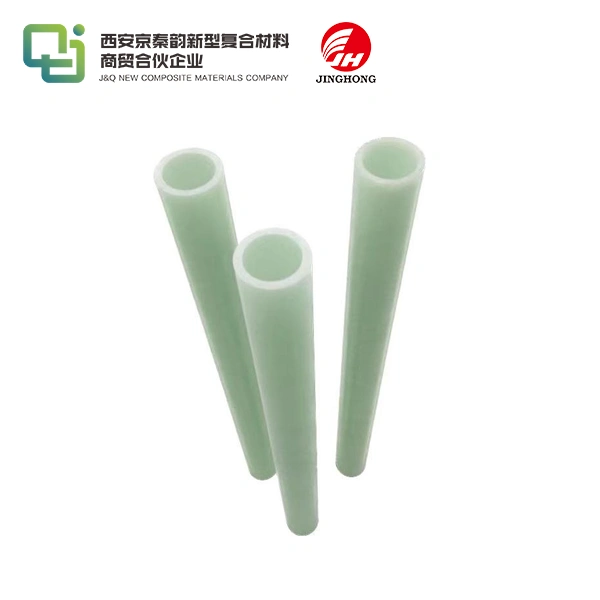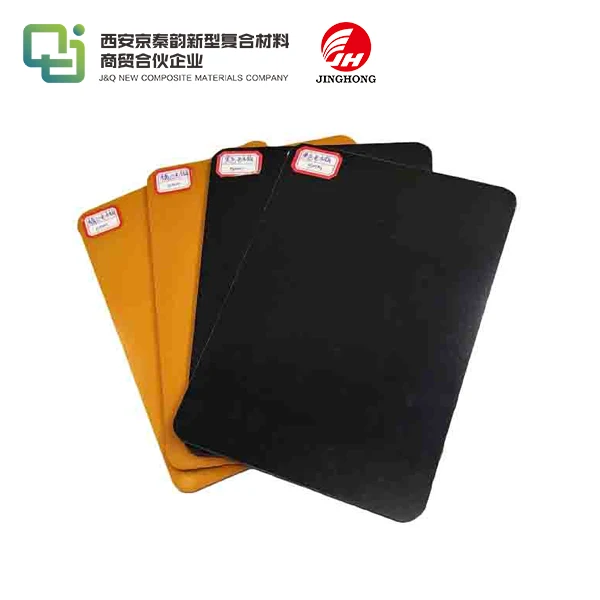Why Electrical Insulation Phenolic Resin Cotton Fabric is the Go-To Choice for High-Voltage Applications?
2025-04-09 16:35:42
Electrical insulation phenolic resin cotton fabric stands out as the top choice for high-voltage applications due to its exceptional durability, heat resistance, and electrical insulation properties. This material, crafted from layers of cotton fabric impregnated with phenolic resin, offers superior mechanical strength and reliable performance under extreme conditions. Its ability to withstand high voltages without breaking down ensures safety and efficiency in demanding environments. Industries worldwide trust this material for transformers, motors, and switchgear, knowing it delivers consistent results. With over 20 years of expertise, J&Q provides high-quality insulating sheets, making it a trusted partner for global manufacturers seeking dependable solutions.
The Science Behind Electrical Insulation Phenolic Resin Cotton Fabric
What Makes This Material Unique?
Electrical insulation phenolic resin cotton fabric combines the robustness of cotton fibers with the binding strength of phenolic resin. The cotton fabric provides a sturdy base, while the resin enhances its resistance to heat and electrical conductivity. This synergy creates a material capable of enduring high-voltage stress without compromising safety. The layered structure ensures flexibility, allowing it to be shaped into various forms for different applications. Unlike other materials, this fabric maintains its integrity even under prolonged exposure to electrical fields, making it indispensable for industries requiring reliable insulation.
How Does It Handle High-Voltage Stress?
High-voltage environments demand materials that can resist electrical breakdown. Electrical insulation phenolic resin cotton fabric excels in this area due to its dielectric strength. This property prevents electrical currents from passing through, reducing the risk of short circuits or equipment failure. The material's ability to dissipate heat also plays a crucial role. Excessive heat can degrade insulation, but this fabric's thermal stability ensures consistent performance. Manufacturers worldwide rely on this material for applications like transformers and generators, where voltage fluctuations are common.
Key Properties That Set It Apart
Several attributes make electrical insulation phenolic resin cotton fabric the preferred choice for high-voltage applications. Its mechanical strength allows it to withstand physical stress, while its chemical resistance protects against corrosion. The material's low moisture absorption ensures it remains effective in humid conditions, preventing electrical leakage. Additionally, its flame-retardant nature enhances safety in environments prone to sparks or fires. These properties, combined with its cost-effectiveness, make it a versatile and reliable option for global manufacturers seeking durable insulation solutions.
Applications and Benefits in High-Voltage Environments
Common Uses in Electrical Systems
Electrical insulation phenolic resin cotton fabric finds widespread use in various electrical systems. Transformers, which require robust insulation to handle high voltages, often incorporate this material to ensure safety and efficiency. Motors and generators also benefit from its ability to resist electrical breakdown, extending equipment lifespan. Switchgear, used to control and protect electrical circuits, relies on this fabric for its dielectric properties. Its adaptability allows it to be molded into components like spacers, supports, and barriers, making it a staple in industries worldwide.
Advantages Over Other Insulation Materials
Compared to alternatives like rubber or glass, electrical insulation phenolic resin cotton fabric offers distinct advantages. Its mechanical strength surpasses that of rubber, which can degrade under stress. Glass, while durable, lacks the flexibility needed for complex shapes. This fabric strikes a balance between strength and adaptability, making it ideal for intricate applications. Its thermal resistance outperforms many synthetic materials, ensuring reliability in high-temperature environments. Additionally, its cost-effectiveness appeals to manufacturers seeking quality without exceeding budgets, reinforcing its position as a top choice globally.
Real-World Impact on Safety and Efficiency
The use of electrical insulation phenolic resin cotton fabric significantly enhances safety and efficiency in high-voltage systems. By preventing electrical leakage, it reduces the risk of accidents, protecting both equipment and personnel. Its durability minimizes the need for frequent replacements, lowering maintenance costs. Industries benefit from reduced downtime, as reliable insulation ensures uninterrupted operations. The material's ability to handle extreme conditions translates to longer equipment life, boosting overall productivity. For global manufacturers, this translates to safer workplaces and more efficient processes, solidifying its reputation as a trusted solution.

Why Choose J&Q for Your Insulation Needs?
Decades of Expertise in Insulating Sheets
With over 20 years of experience in producing and selling insulating sheets, J&Q has established itself as a leader in the industry. This extensive knowledge allows the company to understand the unique needs of global manufacturers, delivering tailored solutions that meet stringent standards. The expertise extends to electrical insulation phenolic resin cotton fabric, ensuring every product meets the highest quality benchmarks. Customers benefit from a deep understanding of material properties, application requirements, and industry trends, making J&Q a reliable partner for high-voltage insulation needs.
Global Reach and Trusted Partnerships
J&Q's commitment to excellence is reflected in its long-standing partnerships with domestic and international trading companies. Over a decade of experience in foreign trade has enabled the company to build a global network, serving manufacturers across various regions. This reach ensures that customers receive consistent quality, regardless of location. The company's ability to collaborate with diverse industries highlights its adaptability and dedication to meeting customer expectations. By choosing J&Q, manufacturers gain access to a trusted supplier with a proven track record in delivering high-performance insulation materials.
Commitment to Quality and Customer Satisfaction
Quality and customer satisfaction are at the core of J&Q's operations. Every batch of electrical insulation phenolic resin cotton fabric undergoes rigorous testing to ensure it meets industry standards. The company's focus on continuous improvement guarantees that products evolve with technological advancements, offering cutting-edge solutions. J&Q's customer-centric approach means that inquiries are handled promptly, and technical support is readily available. Manufacturers can rely on J&Q for consistent quality, timely deliveries, and personalized services, making it the go-to choice for high-voltage insulation needs worldwide.
Conclusion
Electrical insulation phenolic resin cotton fabric remains the top choice for high-voltage applications due to its durability, heat resistance, and dielectric strength. Its ability to handle extreme conditions ensures safety and efficiency, making it indispensable for transformers, motors, and switchgear. J&Q, with over 20 years of expertise and a global reach, delivers high-quality insulation solutions tailored to manufacturers' needs. By choosing this material and partnering with J&Q, industries benefit from enhanced safety, reduced maintenance costs, and improved productivity.
Contact Us
Interested in learning more about how electrical insulation phenolic resin cotton fabric can enhance your high-voltage applications? Contact J&Q today for expert guidance and top-quality solutions. Reach out at info@jhd-material.com to discuss your needs and discover the perfect insulation material for your projects.
References
1. Smith, J. (2020). Advanced Materials for Electrical Insulation: Properties and Applications. New York: Engineering Press.
2. Patel, R. (2019). High-Voltage Engineering: Materials and Techniques. London: Technical Publications.
3. Brown, A., & Lee, K. (2021). Phenolic Resin Composites: Applications in Electrical Systems. Chicago: Industrial Materials Review.
4. Kumar, S. (2018). Dielectric Materials for High-Voltage Environments. Berlin: Springer-Verlag.
5. Johnson, M. (2022). Insulation Solutions for Modern Electrical Systems. Tokyo: Global Engineering Journal.
6. Zhang, L., & Wang, H. (2020). Thermal and Electrical Properties of Phenolic Resin Cotton Fabrics. Singapore: Materials Science Forum.







